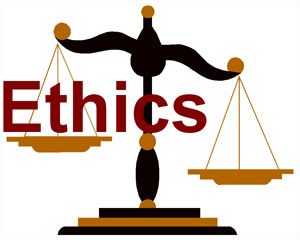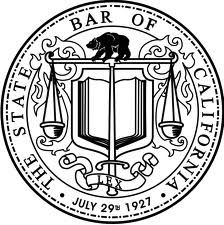Trial lawyers seek and win extreme verdict they know won’t stand
by Chris Reed | November 25, 2014 8:00 am
 An insane court ruling[1] led me to write this[2] for the U-T San Diego:
An insane court ruling[1] led me to write this[2] for the U-T San Diego:
At a recent federal trial in San Diego, lawyers for Rosario Juarez presented compelling, disturbing evidence that the San Ysidro resident faced repeated gender discrimination while working for a National City AutoZone. This led a jury to award her $872,000 in compensatory damages.
But the jury also gave Juarez $185 million in punitive damages — even more than her attorneys sought. This is preposterous in its excess.
Obviously, the jury believed the contention of Juarez’s lawyers that gender discrimination is a pervasive problem with AutoZone, and sought to send a righteous message to the corporation. But as the U.S. Supreme Court held in 1995 in BMW of North America v. Gore, the due process clause of the 14th Amendment to the Constitution requires a reasonable relationship between the harm suffered and the size of punitive damages. Giving Juarez 212 times as much in punitive damages as she received in compensatory damages grossly fails that test.
Unless the punitive damages award is thrown out, it will further add to California’s reputation as a risky place to do business.
Runaway juries don’t just dishonor the judicial system. They can hurt the economy as well.
Trial lawyers’ leader: ‘Jury got your attention’
This prompted a letter[3] saying, essentially, yeah, the lawyers knew the verdict they sought was not legally defensible and would get tossed — but so what? And it wasn’t from just anyone.
Don’t let the verdict fool you (“A runaway jury’s absurd verdict,” Nov. 20), AutoZone won’t pay $185 million for misconduct.
The San Diego County Superior Court jury did exactly what it set out to do when it returned a $185 million punitive damages verdict against AutoZone for blatant employment discrimination: It got your — and the company’s — attention.
But Rosario Juarez and her attorney know AutoZone will never have to pay $185 million. AutoZone knows it too, and so does every other business either operating in or considering operating in California.
This is a case where a citizen jury decided unanimously to do the only thing it could to show AutoZone’s board of directors how disgusted it was by the company’s conduct. Investors were so unconcerned about the verdict that AutoZone’s stock price actually went up when the market opened the day after the verdict was announced.
Nobody at AutoZone is expecting to write a check for $185 million, after a 2003 ruling by the U.S. Supreme Court that, as a general rule, punitive damages should be no more than nine times the amount of compensatory damages awarded in the case. Appellate judges will reduce the verdict, or attorneys for the company and Ms. Juarez may reach a mutually agreeable settlement to end the case.
So, please, no crying about “runaway juries” and “preposterous” damage awards until the case has played out.
Of course, there is one surefire way to avoid the possibility of facing punitive damages: Don’t treat women the way AutoZone did.
Brian Chase / President-elect, Consumer Attorneys of California
Hey, California bar: Is this OK?
 Now I concede the point that it is premature to worry if this ruling will hurt California’s business climate. But I still find it jarring that the incoming president of a large attorneys’ group would candidly admit that trial lawyers knowingly urge juries to issue judgments that are certain to be rejected.
Now I concede the point that it is premature to worry if this ruling will hurt California’s business climate. But I still find it jarring that the incoming president of a large attorneys’ group would candidly admit that trial lawyers knowingly urge juries to issue judgments that are certain to be rejected.
Are we all now living in John Grisham’s fiction[4] with avenging juries and noble attorneys playing the role of Robin Hood?
Maybe this is just the naive layman in me, but I have to wonder: What does the State Bar of California think of tactics that may be effective but are built on a strategy of seeking jury complicity in reaching dead-on-appeal verdicts?
I went on a fishing expedition[5]. This seems germane[6]:
A member shall not intentionally, recklessly, or repeatedly fail to perform legal services with competence.
And so does this[7]:
A member shall not knowingly assist in, solicit, or induce any violation of these rules or the State Bar Act.
If any lawyer can offer some insight into this matter, please comment below or email me at [email protected].
- court ruling: http://www.latimes.com/business/la-fi-auto-zone-discrimination-verdict-20141118-story.html
- write this: http://www.utsandiego.com/news/2014/nov/19/autozone-a-runaway-jurys-absurd-verdict/
- a letter: http://www.utsandiego.com/news/2014/nov/21/dont-fret-large-awards/all/?print
- John Grisham’s fiction: http://en.wikipedia.org/wiki/The_Runaway_Jury
- fishing expedition: http://ethics.calbar.ca.gov/
- germane: http://rules.calbar.ca.gov/Rules/RulesofProfessionalConduct/CurrentRules/Rule3110.aspx
- does this: http://rules.calbar.ca.gov/Rules/RulesofProfessionalConduct/CurrentRules/Rule1120.aspx
Source URL: https://calwatchdog.com/2014/11/25/trial-lawyers-seek-win-verdict-they-know-cant-stand/